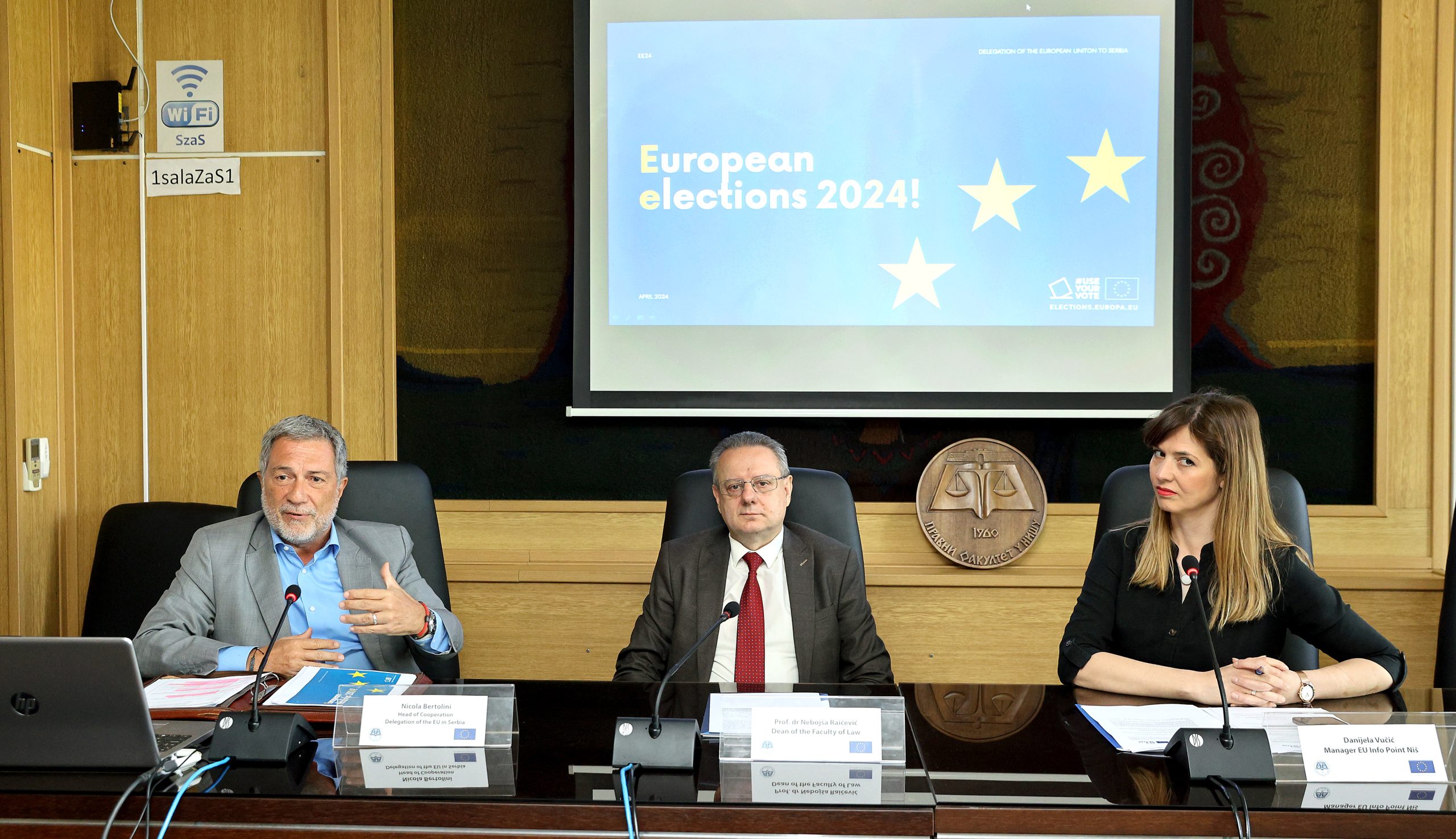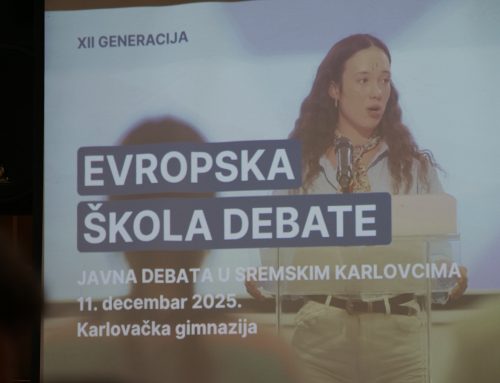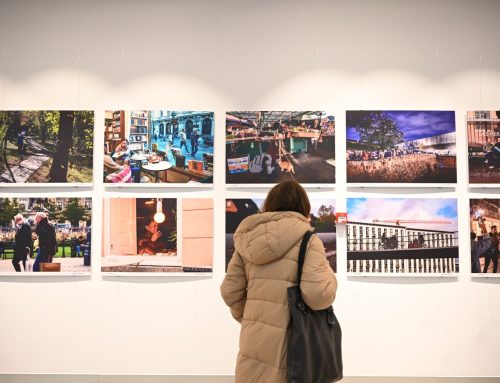This year’s European Parliament elections were presented to the students of the Faculty of Law in Niš by Mr. Nicola Bertolini, Head of the Cooperation at the EU Delegation to Serbia.
European elections are considered the largest transnational voting event as they are organised over four days in the 27 EU Member States, with 376 million EU citizens eligible to vote, out of which 26 million will be voting for the first time. These elections are also one of the world’s largest democratic voting process.
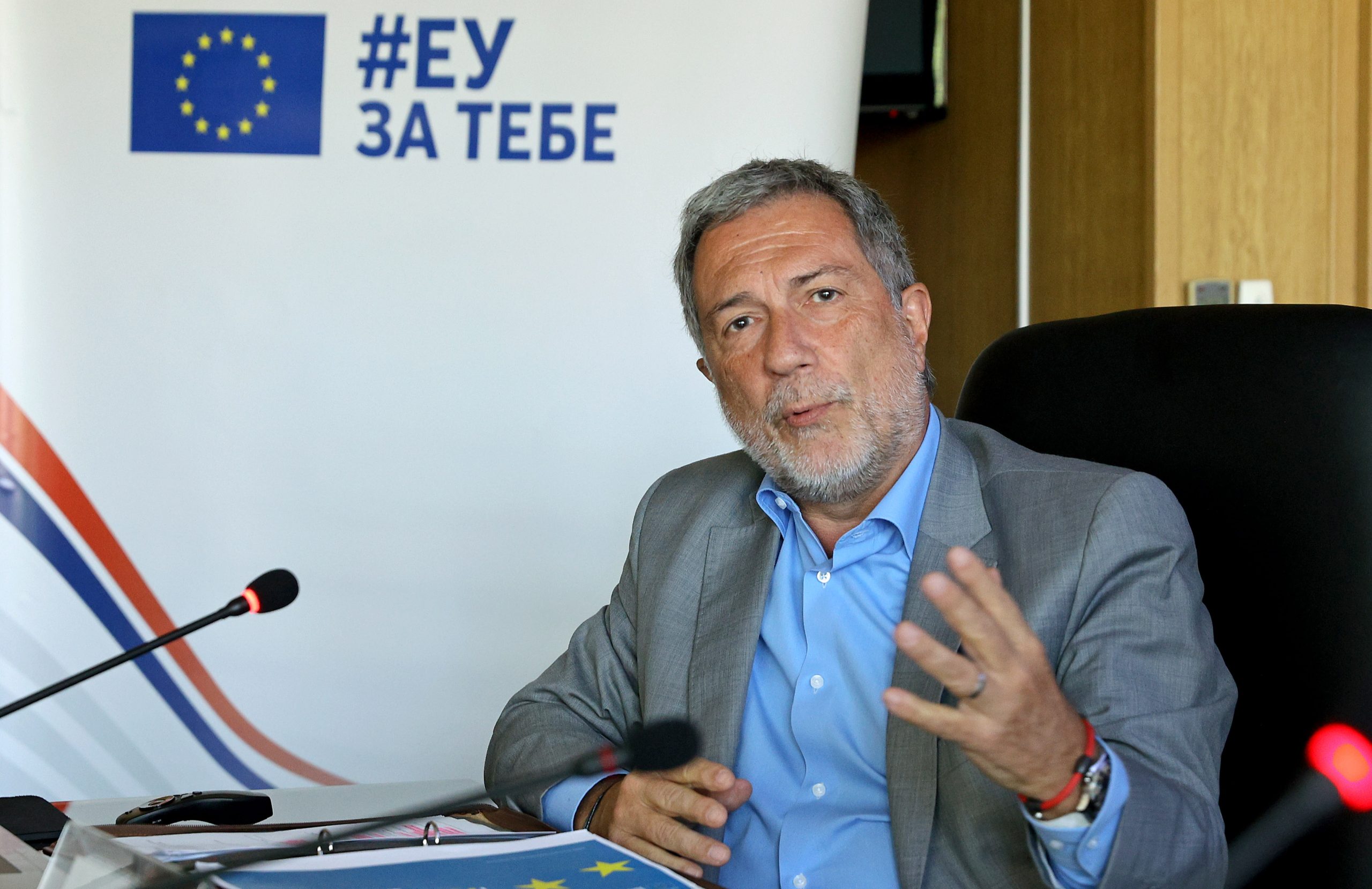
During the four-day election process, EU citizens will elect their representatives to the European Parliament, which will consists of 720 Members of the European Parliament (MEPs) for the upcoming legislature. New leaders of European Union institutions will also be appointed, such as the President and members of the European Commission, the President of the European Council and the European Parliament, as well as the High Representative of the EU for Foreign Affairs and Security Policy.
The presentation, followed by an open discussion was an opportunity for students to familiarise themselves with all aspects of the European Parliament election procedure, its composition and working methods, competences and functions, its importance for the development of democracy within the European Union, as well as other current issues related to this year’s elections . Whether and how Russia’s aggression against Ukraine could affect the European elections, how the organisation of elections is financed, how electoral campaigns function, and how the voting system works in European elections were some of the questions posed by students of the Faculty of Law in Niš to Mr. Bertolini.
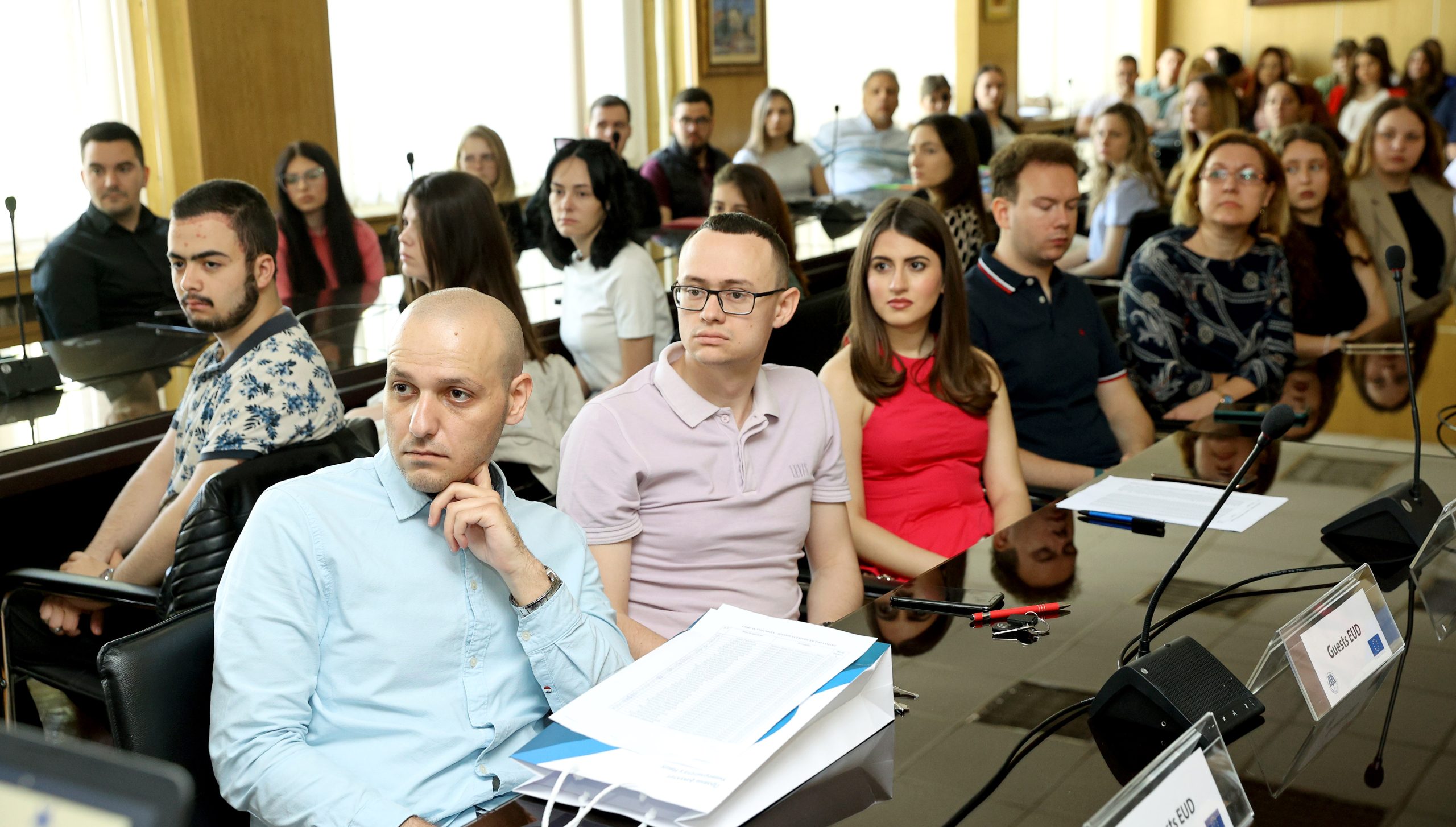
Mr. Bertolini emphasised that for the citizens of the European Union, it is equally important to be citizens of their own countries as it is to be citizens of the Union, and that the values of the EU -human dignity, freedom, democracy, equality, rule of law – ensure the EU’s unity in diversity . It is precisely why these elections are an opportunity for the EU citizens to vote: change is possible, that the fight against global challenges is feasible, and that the protection of democracy is in their hands.

